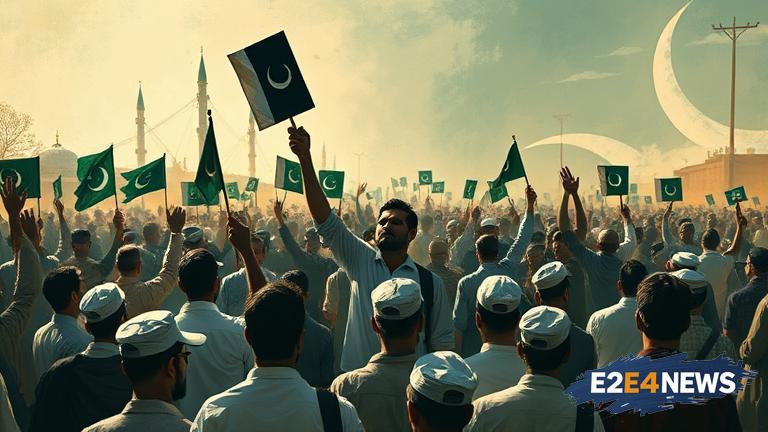The Pakistan Tehreek-e-Insaf (PTI) has announced a nationwide protest, signaling the start of a struggle for justice in the country. The move comes as a response to the perceived injustices and corruption within the government. PTI chairman Imran Khan has been vocal about the need for reform and accountability, and the protest is seen as a key step towards achieving these goals. The party has called upon its supporters to take to the streets and demand justice, sparking concerns about potential unrest and violence. As the protest gains momentum, the government is under pressure to address the grievances of the PTI and its supporters. The situation is being closely watched by the international community, with many countries expressing concern about the potential for instability in the region. The PTI has long been critical of the government, accusing it of corruption and mismanagement. The party has also been vocal about the need for electoral reform, citing concerns about the integrity of the voting process. The protest is seen as a test of the government’s commitment to democracy and the rule of law. The PTI has promised to continue the protest until its demands are met, raising the stakes for the government. The situation is complex, with multiple factors at play, including political, economic, and social considerations. The government has responded to the protest by deploying security forces and imposing restrictions on movement and assembly. However, the PTI remains undeterred, with its supporters continuing to take to the streets. The protest has sparked a national debate about the role of the government and the need for reform. Many Pakistanis are frustrated with the current state of affairs, citing corruption, poverty, and inequality as major concerns. The PTI has tapped into this frustration, using it to mobilize support for its cause. The party’s message of justice and accountability has resonated with many, particularly among the youth and middle class. As the protest continues, the government is under increasing pressure to respond to the PTI’s demands. The situation is precarious, with the potential for violence and unrest hanging in the balance. The international community is watching closely, with many countries urging calm and restraint. The United States, China, and other major powers have expressed concern about the situation, calling for a peaceful resolution. The European Union has also weighed in, urging the government and the PTI to engage in dialogue and find a peaceful solution. The situation is a major test for the government, which is facing criticism from both within and outside the country. The PTI’s protest has sparked a national conversation about the need for reform and accountability, and the government’s response will be closely watched. The country’s future hangs in the balance, with the potential for instability and unrest a major concern. The government must navigate this complex situation carefully, balancing the need for order and stability with the need for reform and accountability. The PTI’s protest is a wake-up call for the government, highlighting the need for change and reform. The party’s demands for justice and accountability have resonated with many, and the government must respond to these concerns if it is to maintain legitimacy and stability. The situation is fluid, with the potential for rapid change and development. As the protest continues, the government and the PTI must engage in dialogue and find a peaceful solution, one that addresses the concerns of all parties and promotes stability and prosperity for the country.





